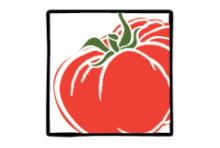The mission of Wasatch Community Gardens (WCG) is to empower people to grow and eat healthy, organic, local food. WCG cultivates garden spaces, programming, events, and community connections centered around growing and eating fresh, nutritious food. Encompassing 7+ acres of productive urban green space in Salt Lake County, we oversee our main Campus/headquarters, 19 community gardens, and two farms. We value enduring partnerships with municipalities, schools, and other nonprofits to ... Leggi tutto
The mission of Wasatch Community Gardens (WCG) is to empower people to grow and eat healthy, organic, local food. WCG cultivates garden spaces, programming, events, and community connections centered around growing and eating fresh, nutritious food. Encompassing 7+ acres of productive urban green space in Salt Lake County, we oversee our main Campus/headquarters, 19 community gardens, and two farms. We value enduring partnerships with municipalities, schools, and other nonprofits to execute our programs and reach community members from a range of backgrounds. Annually, 13,000+ community members are served by WCG’s programs, gardens, events, and produce donations, and the majority of program participants are from low- and moderate-income households. In 2025, we are in year three of a 5-Year, $5 Million Growth Plan to support organizational capacity building and capital infrastructure for our two new urban farms.
We accomplish our mission through six main programs:
Youth & School Garden Program - school field trips, summer camps, and weekly classes at the WCG Campus; support and resources for onsite school gardens; Family Garden Gatherings for families from Title I schools
Community Garden Program - 19 community gardens where community members can grow their own food
Education Program - hands-on workshops, virtual learning opportunities, and community science activities
Job Training Program’s Green Team - paid employment, work readiness training, job placement and continuing education assistance, housing support, and mentoring for women facing or experiencing homelessness at our urban farm
Advocacy & Justice Program (new in 2024) - supports and develops programming that is more deeply culturally appropriate and accessible for historically marginalized communities while working to deepen food justice efforts in our communities
Volunteer Program - one-time and ongoing educational volunteer opportunities for individuals, families, students, corporate groups, and other community members
Nascondi testo completo